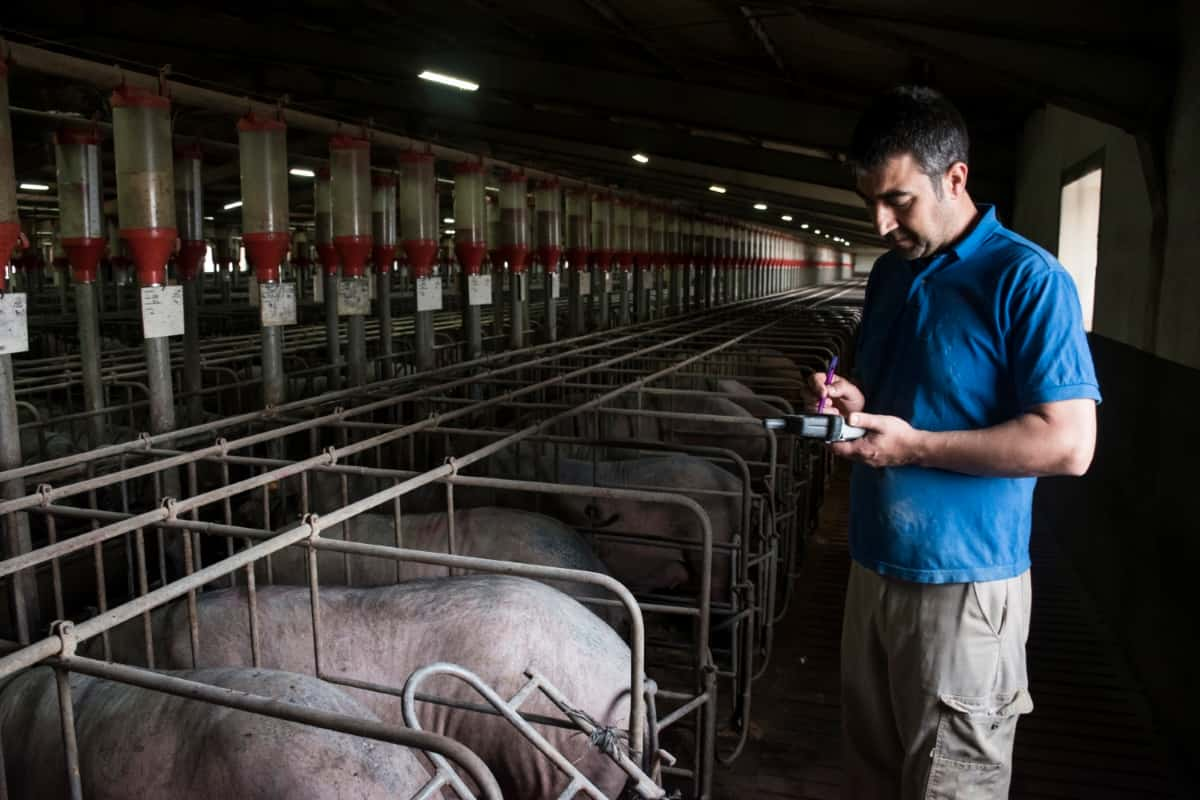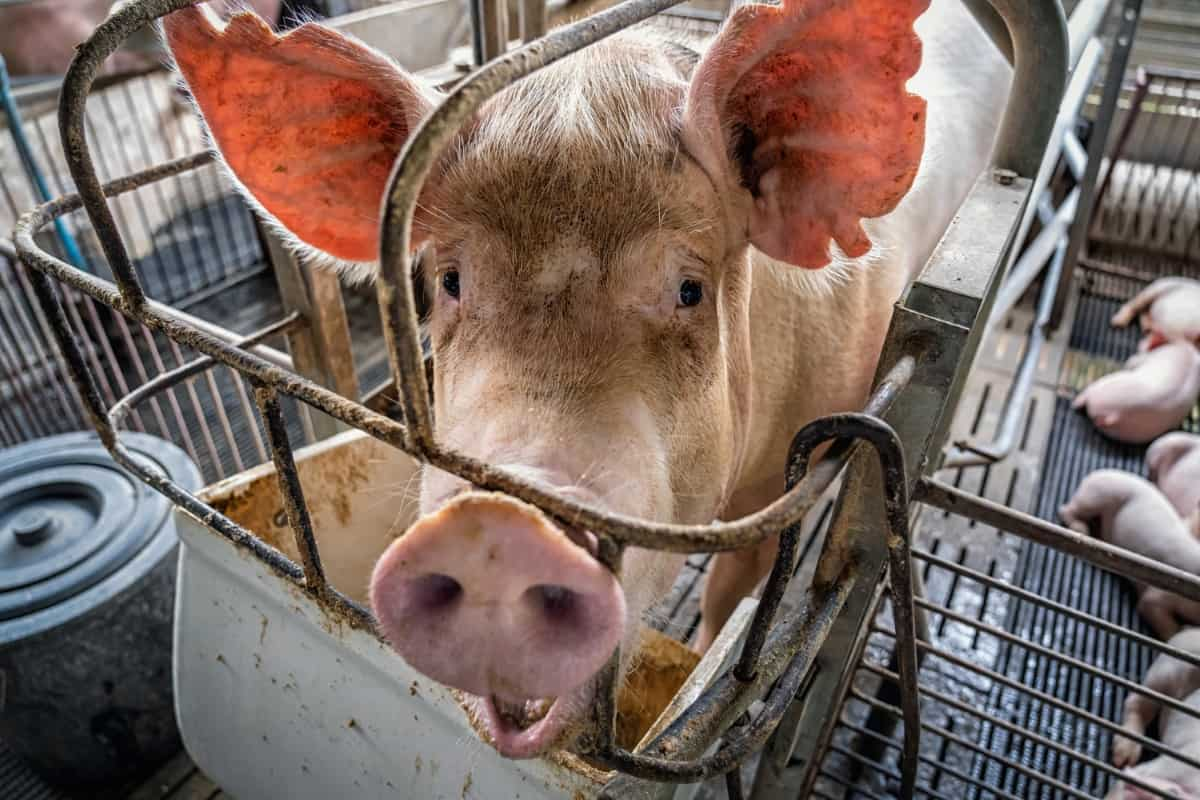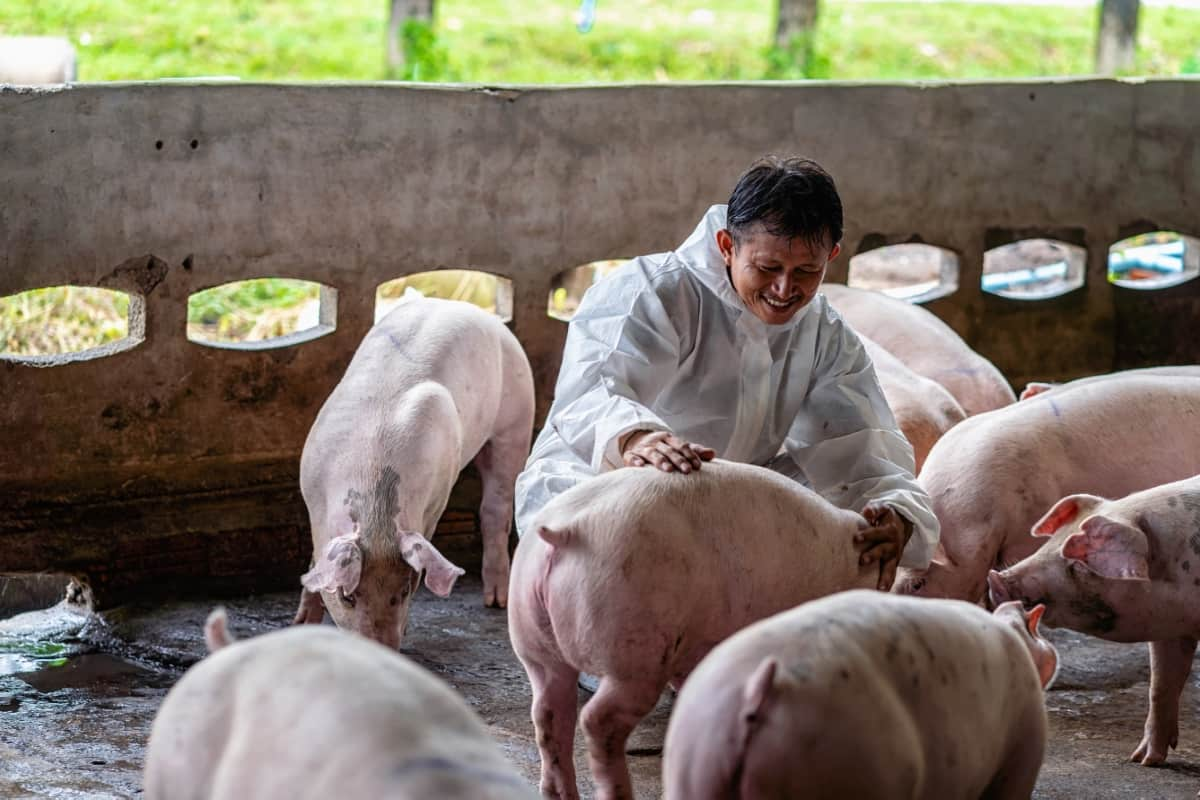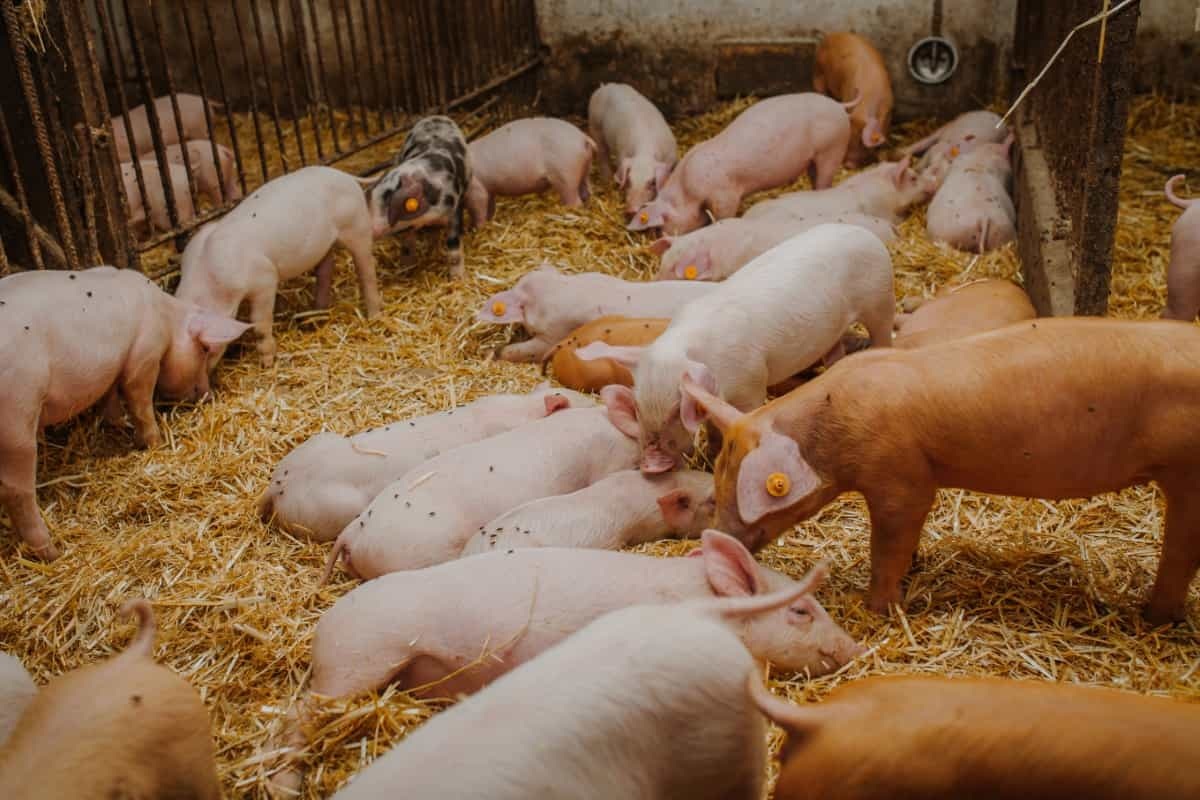Efficient waste management in pig farming is gaining importance due to the substantial environmental repercussions associated with this industry. Pig farming generates considerable waste, and improper handling can result in severe environmental and health concerns. Solutions to these piggery problems involve innovative and eco-friendly methods that reduce pollution and turn waste into valuable resources.

Farmers can address the swine waste management problems and solutions by focusing on sustainable practices in pig waste management, making their operations more eco-friendly and efficient. This method supports environmental cleanliness and enhances the sustainability of agriculture. The transformation of waste into resources in the pig farmhouse represents an exciting opportunity for farmers to improve their environmental footprint and bottom line.
Sustainable Waste Management in Pig Farms
Environmental Impacts of Pig Farming and Waste Management
Pig farming can have a substantial environmental impact, particularly if waste management is improperly handled. The waste produced in pig farms, rich in nutrients and organic matter, can lead to soil and water pollution if not managed sustainably. This pollution can harm local ecosystems and pose risks to human health.
Sustainable waste management in pig farms is thus critical in mitigating these environmental impacts. Effective waste management includes procedures that reduce the emission of hazardous materials into the environment and encourage the recycling of waste into valuable resources. By doing so, pig farms can significantly reduce their environmental footprint and contribute positively to their surrounding ecosystems.
Challenges Faced in Waste Management on Pig Farms
Managing waste on pig farms presents several challenges. The sheer volume of waste produced and its composition make it difficult to process and handle efficiently. The odor and potential for water contamination are major concerns, as is the need to adhere to environmental regulations.
Additionally, finding cost-effective and practical solutions that can be implemented in the typical pig farmhouse is a significant hurdle. These challenges require innovative and adaptable approaches to waste management, which are both environmentally friendly and economically viable for farmers.
Anaerobic Digestion: A Promising Solution for Pig Farm Waste
Anaerobic digestion is a promising solution for managing waste in pig farms. This procedure entails the decomposition of organic material without oxygen, resulting in the creation of biogas. This biogas serves as a renewable energy source, offering a sustainable replacement for fossil fuels.
Additionally, anaerobic digestion reduces waste volume, mitigates odor problems, and yields digestate, a nutrient-rich material suitable for natural fertilization. This method addresses several key swine waste management problems and solutions, offering an effective way to manage waste while generating additional revenue for the farm.
Composting as a Sustainable Waste Management Technique in Pig Farms
Composting is another sustainable waste management technique suitable for pig farms. This process involves the biological decomposition of organic waste under controlled conditions. Composting transforms pig waste into a valuable soil amendment, enriching the soil and improving its structure and nutrient content.
In case you missed it: The Pig Fattening Process: Methods, Feed Formula, and Cost

This method is effective in managing waste and contributes to sustainable agricultural practices by returning valuable nutrients to the land. Composting is a practical and low-cost solution that can be easily implemented in pig farms, helping to close the nutrient loop and reduce the environmental impact of pig farming.
Vermicomposting: Harnessing the Power of Worms in Pig Farm Waste Management
Vermicomposting is a cutting-edge method for managing pig farm waste by employing worms to decompose organic matter. It excels in transforming pig waste into premium compost. Worms consume the waste, breaking it down into nutrient-rich organic fertilizer known as worm castings. Vermicomposting helps manage waste and produces a valuable product that can enhance soil health and fertility. It is a low-cost, environmentally friendly solution that can be easily integrated into the waste management practices of pig farms.
Biogas Production from Pig Farm Waste: Energy Recovery and Environmental Benefits
Biogas production from pig farm waste is a method that offers both energy recovery and environmental benefits. The process involves the anaerobic digestion of organic waste to produce biogas, a mixture of methane and carbon dioxide. This biogas serves as a sustainable energy source, supplying power to the pig farm or contributing to the energy grid.
It diminishes dependence on fossil fuels and substantially lowers greenhouse gas emissions. Additionally, it generates a nutrient-rich digestate that enhances the farm’s sustainability when used as fertilizer. Biogas production represents a holistic approach to sustainable waste management in pig farms by converting waste into energy and valuable by-products.
Nutrient Recovery from Pig Farm Waste: Turning Waste into Fertilizer
Nutrient recovery from pig farm waste plays a crucial role in sustainable agriculture. By turning waste into fertilizer, farms address the issue of waste disposal and create a valuable resource for crop production. Techniques like anaerobic digestion, composting, and vermicomposting facilitate the breakdown of organic matter in pig waste, transforming it into nutrient-rich fertilizers.
In case you missed it: 15 Cheapest Ways to Build a Pig Pen: Budget-Friendly Construction Ideas, Tips, and Techniques

These fertilizers contain essential nutrients such as nitrogen, phosphorus, and potassium, vital for plant growth. Using such fertilizers not only reduces the need for synthetic fertilizers but also helps close the nutrient loop within the farm ecosystem. This approach exemplifies a circular economy model in agriculture, where waste is not seen as a by-product but a resource for enhancing soil health and fertility.
Innovative Technologies for Sustainable Pig Farm Waste Treatment
In the realm of sustainable pig farm waste treatment, innovative technologies are making significant strides. These technologies focus on reducing the environmental impact of pig farming while converting waste into usable products. For instance, advanced anaerobic digesters and biogas plants efficiently convert organic waste into renewable energy.
Similarly, new composting techniques and equipment have made the process more efficient and less time-consuming. Emerging technologies also focus on nutrient extraction and water purification, ensuring that waste treatment is comprehensive and sustainable. These technologies are effective in managing the high volume of waste and reducing the carbon footprint of pig farms.
Best Practices for Odor Control in Pig Farm Waste Management
Odor control is a significant challenge in pig farm waste management. To effectively manage this issue, adopting best practices is essential. Firstly, properly cleaning the pig farmhouse and waste storage areas is crucial. This includes removing waste promptly and ensuring that storage facilities are sealed and well-ventilated. Secondly, adopting waste treatment methods like anaerobic digestion and composting can significantly reduce odor as these processes break down odor-causing compounds.
In case you missed it: Technology in Modern Pig Production: Automation and Innovation in Pig Farming

Another effective practice is biofilters and odor-neutralizing agents that absorb or chemically alter odor molecules. Proper waste management planning, such as locating composting sites away from residential areas and maintaining buffer zones, can also help minimize odor issues. Implementing these best practices not only improves the working environment within the farm but also helps in maintaining good relationships with neighboring communities.
Conclusion
Sustainable waste management in pig farms addresses environmental concerns and transforms challenges into valuable opportunities, leading to a more efficient and eco-friendly agricultural sector. By embracing innovative solutions and best practices, pig farmers can significantly reduce their environmental impact while enhancing productivity and sustainability.
- Feed Your Flock for Less: Top 10 Tips to Save on Chicken Feed
- Ultimate Guide to Ossabaw Island Hog: Breeding, Raising, Diet, and Care
- Hatching Answers: The Top 10 Reasons Your Chickens Aren’t Laying Eggs
- Eggs and Economics: Breaking Down the Cost of Raising Backyard Chickens
- Defend Your Greens: Proven Methods to Keep Iguanas Out of Your Garden
- Ultimate Guide to Cinnamon Queen Chicken: A Comprehensive Guide for Beginners
- Ultimate Guide to California Tan Chicken: Breeding, Raising, Diet, Egg-Production and Care
- Ultimate Guide to Marsh Daisy Chicken: Breeding, Raising, Diet, and Care
- 10 Types of Chicken Farming Businesses You Can Start for Profits